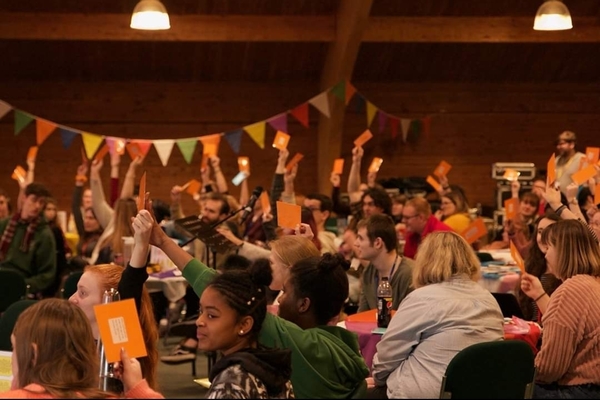A guest blog from Reuben Watt, associate partner the United Reformed Church (URC) Youth Assembly Moderator-elect, on the power of young people in the world…
Greta Thunberg and Louis Braille are two names that you may have heard of. Both of these people have one thing in common: before the age of 18 they had changed the world in their own way.
Young people making a difference has not always been reported by the media. A report, by the Youth Media Agency in 2011, found that 76 per cent of press young people received was negative. However, that stereotype has recently shifted. For example, Greta Thunberg has featured in the news a lot during the past six months relating to the protests she led and encouraged around the world. For example, on 15 March, an estimated 1.4 million students followed Greta in protesting about the need for immediate action to combat climate change.
On the back of these protests, Jean-Claude Juncker, President of the European Commission, unveiled a proposal to spend hundreds of billions of Euros on mitigating climate change beginning in 2021. None of this may have happened had it not of been for 16-year-old Greta and it is safe to say that she has potentially changed the world.
Louis Braille has also made change. Braille turned completely blind by the age of five which changed his life completely. At this age there were several systems, such as Barbier, to help those that are blind to read and communicate. However, Braille decided that Barbier was too complicated and decided to invent his own. Braille is now used by many people who are classed as blind. This is a fantastic example of how a young person caused change within the wider world.
Having turned 18 last October, I was lucky enough to vote in the local and European elections for the first time in May but I was not able to vote during the referendum to leave the EU. According to polls and reports of the time, had 16 and 17 year-olds been allowed to vote, the outcome would have been completely different. Although everyone may not agree with that particular outcome, I do believe it is important for young people’s voices to be listened to. This is because many of those in the 16 and 17 year-old age category do have an interest in politics and are becoming particularly frustrated by the current political climate.
As URC Youth Assembly Moderator-elect, one of my roles is to give young people aged 11 to 25 a voice within the wider URC denomination. I am really passionate about that because I do believe that, like Greta, they can make a dramatic difference in their local communities, church and the denomination as a whole. For example, at our most recent URC council meeting, the URC Youth played a key role in the decision to divest from fossil fuels.
If you work or are part of any groups or organisations that involve young people, what are you doing to listen to their voices? If you are doing nothing ask yourself, how can you do more?
See you all at Greenbelt!


